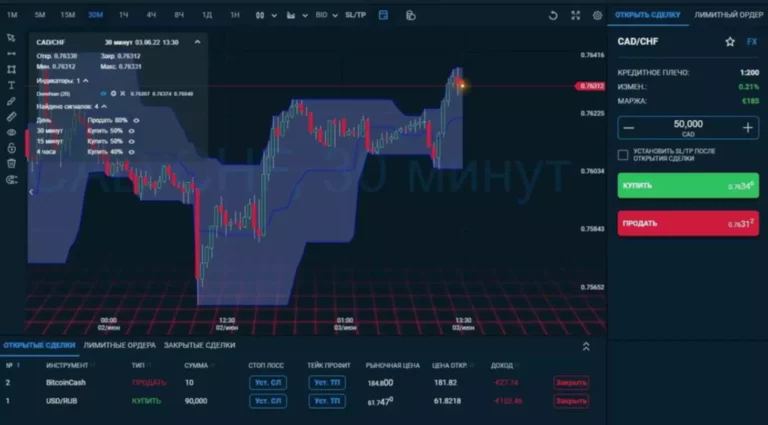Content
- Florida High Court Gave Bars a Big Win, But There Are Additional Ways to Reduce Liability Risk
- Sixth District Court of Appeal Limits Officers’ Authority to Investigate DUI Offenses
- EXECUTION MATTERS: Quad Witch Approaches on Sept. 20
- Commodity Futures Trading Commission (CFTC)
- Pros and Cons of Clearing Brokers
- What Are the Strengths of a Self-Clearing Broker Dealer?
- Viewpoint: Early Action Key to Mitigating Risk in Professional Liability Claims
The clearing broker may provide margin loans to introduced customers, upon their request, using the cash and securities in their introduced account as collateral of their margin loans. Pretty much all bulge bracket banks have investment arms and proprietary trading desks, as well as broker-dealer arms what is a clearing broker that provide both execution and clearing services and that operate one or multiple dark pools. It’s easy to imagine how there are both potential efficiencies and potential conflicts of interest introduced by a single financial institution performing multiple different functions in the trading life cycle. In our case, however, all of these parties will generally be completely separate, and Proof Services, our broker-dealer subsidiary, will just be the executing broker in the equation. It’s not unusual for traders to have their brokers contact several clearing firms to locate shortable shares for traders. While this is done electronically, it can still take time and much effort for hard to borrow (HTB) stocks.
Florida High Court Gave Bars a Big Win, But There Are Additional Ways to Reduce Liability Risk
Clearing remains a potentially lucrative business for well-capitalized broker dealers. Despite a consolidation trend that in the past few years saw the disappearance of some clearing providers, industry experts say there are still enough competitive survivors willing to do good deals with active trading desks. Executing brokers focus on trade execution, whereas clearing brokers ensure trade settlement and proper clearing. Chances are if you opt for a direct market access broker (DMA), the broker has done the https://www.xcritical.com/ research for you. DMA brokers team up with clearing firms that will enable the success of their clients. While many traders don’t think twice about these institutions, clearing firms are the backbone of the publicly traded markets.
Sixth District Court of Appeal Limits Officers’ Authority to Investigate DUI Offenses
A clearing broker will work for a clearing company, which ensures that a trade is settled appropriately and the transaction is successful. Clearing companies are also responsible for reporting the trades while maintaining the paperwork required. A hybrid model is also an option, where the broker-dealer uses a combination of self-clearing and third-party clearing.
EXECUTION MATTERS: Quad Witch Approaches on Sept. 20
The industries most recognized and largest clearing firms are Pershing and Fidelity’s National Financial Services. The decision for a firm to transition to self-clearing or to outsource its operations elsewhere is influenced by various factors. Two significant considerations are gaining enhanced control and efficiency throughout the entire trading process and striving to boost profit margins by eliminating fees paid to clearing firms for their services, such as commission fees and market rebates. This process lasts for several working days and is called T+2 (the date when the deal was concluded + 2 additional days). It is worth noting that traders have a special advantage in the trading process thanks to margin accounts, which allow placing more orders without waiting for actual settlements because the funds are borrowed and returned after the deal is closed. However, in most cases, brokers delegate this function to a clearing company that settles transactions for a certain fee because such a back-office is very expensive and time-consuming for many of them.
Commodity Futures Trading Commission (CFTC)
A specialized clearing broker can provide you with a centralized clearing and settlement platform that streamlines the process and reduces the risk of errors and delays. For example, let’s say you’re a hedge fund manager with a portfolio of OTC derivatives. A specialized clearing broker can provide you with a range of risk management tools, such as margining, netting, and collateral management, to help you mitigate your risk exposure and protect your portfolio.
- As a general rule, broker dealers will use a clearing firm while an RIA will use a custodian, but there are plenty of exceptions to this rule.
- For futures and options, a clearinghouse functions as an intermediary for the transaction, acting as the implicit counterparty to both the buyer and seller of the future or option.
- Clearing brokers act as an intermediary between those placing trades and the exchange from which the trade will be sourced.
- A selection criterion frequently encountered is relevant to a clearing firm’s capability to simultaneously provide front, middle as well as back office services.
Pros and Cons of Clearing Brokers
Choosing a reliable clearing broker is critical for effective collateral management. It reduces the risk of loss, ensures compliance with regulatory requirements, and provides operational efficiency. By considering the factors mentioned above, financial institutions can select a clearing broker that meets their needs and provides a secure and reliable collateral management process. While executing and clearing brokers have distinct roles, their collaboration is essential for the smooth functioning of financial markets.
What Are the Strengths of a Self-Clearing Broker Dealer?
That order is then sent electronically to a clearinghouse, also called a clearing broker, who makes sure the trade is legal and possible, then performs the trade on the appropriate exchange. Limit orders can be routed to an electronic communications network (ECN) that is designed to match buy and sell orders at specified prices. Lastly, the broker may try to fill the order from its own inventory by selling a stock that the broker’s firm owns or taking in stock on its books that a customer wants to sell. If the stock is traded on an exchange (for example, the NYSE), it can send the order directly to that exchange, to another exchange, or to a third market maker. If the stock trades in an over-the-counter (OTC) market such as Nasdaq, the broker could send the order to that market maker.
Viewpoint: Early Action Key to Mitigating Risk in Professional Liability Claims
It is this large capital outlay that has pressured many trading desks in the past 12 months to discontinue their self-clearing operations and to sign deals with larger and better-equipped broker dealers. What small clearing firms lack in size, they sometimes compensate for in areas such as personalized customer service and hand-holding. With that in mind, we’d like to share our experience evaluating and selecting our clearing partner. As usual, this post reflects our experience building an institutional US equities broker, although many of the clearing firms we evaluated also serve retail brokers and clear other asset classes, so some of this information may carry over. Between the five of us at Proof, we have over 50 years of experience working in institutional equity trading, primarily designing and building trading algorithms and technology platforms at the broker-dealer and stock exchange layers of the ecosystem.
The Liability of Clearing Brokers to Public Investors
Each trader knows that the clearing firm will be collecting enough funds from all trading parties, so they don’t need to worry about credit or default risk of the person on the other side of the transaction. A clearing fee is a fee charged on transactions as a way to compensate the clearinghouse for completing the transaction. The fee varies on the type and size of the transaction and can be quite high for futures traders. Examples of some large clearing houses are CME Clearing (a unit of CME Group Inc.), ICE Clear U.S. (a unit of Intercontinental Exchange Inc.), and LCH Ltd. (a unit of London Stock Exchange Group Plc).
Once they determine that a trade is settled appropriately and that it is complete, they work with a clearinghouse to ensure proper handling and transfer of funds. One of the more prominent factors that influence a firm’s decision is the control over the trading process, which might not be attainable if they used an external third party. Without relying on an external third party providing these services, communication is streamlined, which allows the firm to provide quick and direct answers to their clients, or vice versa, for greater efficiency. Understanding clearing broker fees and costs is an important part of managing the overall cost of trading. Traders should carefully consider these fees and costs when choosing a clearing broker and when executing trades.
Finally, custody fees are charges for holding and safeguarding clients’ securities and other assets. These fees cover the costs of maintaining custody accounts, providing secure storage facilities, and administering asset transfers. Custody fees are more often calculated on a periodic basis, such as monthly or annually. They may also be calculated as a percentage of the total value of assets under custody. The kind of broker who clears transactions that have been executed by itself or a different executing broker.
One should always bear in mind not only the current market conditions, but also any future change that might be round the corner. The most important thing is to find what serves best current demands and future needs, and build a good relationship with the clearing firm, a relationship that could evolve to a truly effective partnership. In any case, the clearing firm should describe explicitly the detailed specifications of all the files or functions they can provide, as well as the format and the frequency of each deliverable.
One of the main clearing broker fees is the clearing fee, which is charged for the clearing house’s services in guaranteeing the trade. This fee is generally charged on a per-lot basis and can vary depending on the product and the clearing house. Traders should also be aware of other fees such as exchange fees, which are charged by the exchange where the trade is executed, and regulatory fees, which are charged by regulatory bodies such as the Commodity Futures Trading Commission (CFTC). For example, in 2011, the collapse of MF Global, a clearing broker, resulted in the loss of over $1.6 billion in customer funds.
Thankfully, these tasks are handled seamlessly and efficiently every day by clearing firms. Clearing is often bundled with other services such as custody, stock loan, and margin financing as part of a prime brokerage arrangement. A retail broker or proprietary trading firm, for example, might have the need for a prime broker that provides all of these services together.
The risk of loss in online trading of stocks, options, futures, forex, foreign equities, and fixed income can be substantial. Before trading, clients must read the relevant risk disclosure statements on IBKR’s Warnings and Disclosures page. While there are benefits of becoming self-clearing, it may not be right for all firms. All factors should be considered as to this change’s impact, both internally within the organization and external filing requirements. For additional insight as to potential impacts that should be considered an individual company, please feel free to reach out to Baker Tilly.






